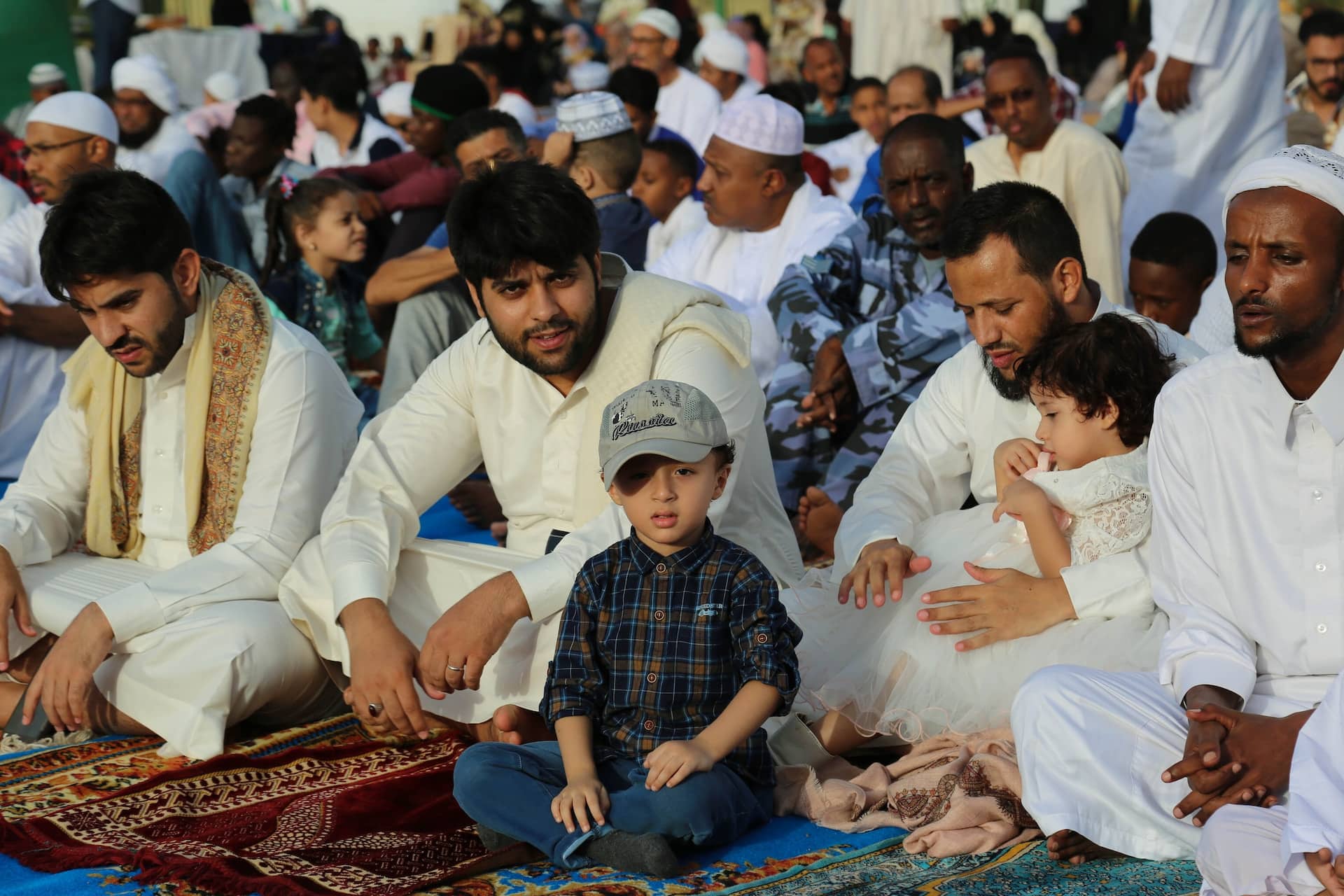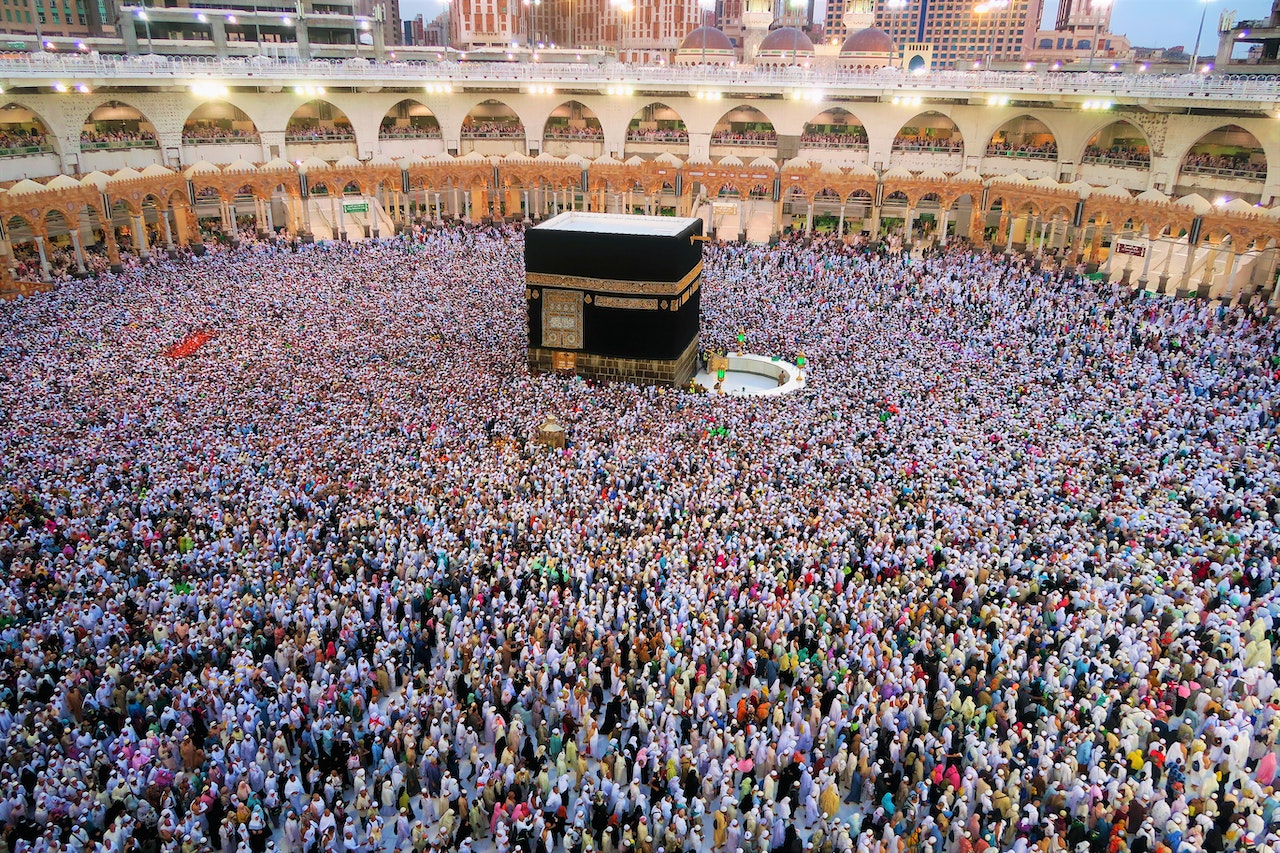Women will have different concerns to men when performing Umrah, such as what to do when menstruating, if a woman can travel without a mahram to perform her Umrah, and even what to wear once when entering the state of ihram for Umrah. Even for Hajj, females should be aware of all of the steps they will do differently to men in order to ensure the rituals are performed correctly.
When it comes to the rituals of performing Umrah, there’s little that men and women actually do differently – but if you are looking for Umrah packages now, it’s vital that you make a note of the information in this article for your pilgrimage, particularly if you’re performing Umrah for the first time.
Umrah, a sacred pilgrimage in Islam, offers a journey of reflection and devotion in Makkah. This section provides a concise introduction, capturing its essence, rituals, and significance, guiding both novices and those familiar with its profound traditions. Dive in to grasp the heart of this spiritual endeavor.
Umrah is a lesser pilgrimage in Islam, compared to Hajj. It’s voluntary, taking place in Mecca, Saudi Arabia, and can be performed throughout the year, unlike the annual Hajj.
Anyone who proceeds with this spiritual journey purifies their body, heart, soul and mind from their past sins.
Depending on ability and capacity in the masjid, Umrah can be performed in as little as 45 minutes upto 3 hours.
Umrah holds significant spiritual value. The Prophet Muhammad, peace be upon him highlighted its importance, stating that it serves as an expiation for sins committed between consecutive Umrahs, enhancing one’s piety and spiritual growth.
Reward for performing Umrah in Ramadan:
1. The Prophet blessings and peace be upon him said: “Performance of Umrah in Ramadan is equivalent to Hajj”, or he said: “Equal to performance of Hajj with me”
2. This virtue extends to all the days and nights of Ramadan
3. The pilgrim must perform his Umrah at the time allotted to him as shown by the reservations in the official Umrah applications
A Muslim may perform Umrah at any time. However, there are important criteria for determining the appropriate time for Umrah for each person:
Ramadan, the holy month of fasting, amplifies the rewards of Umrah. Undertaking it during this time is believed to grant blessings equivalent to performing Hajj alongside the Prophet Muhammad, emphasizing its special significance.
Reward for performing Umrah in Ramadan:
1. The Prophet blessings and peace be upon him said: “Performance of Umrah in Ramadan is equivalent to Hajj”, or he said: “Equal to performance of Hajj with me”
2. This virtue extends to all the days and nights of Ramadan
3. The pilgrim must perform his Umrah at the time allotted to him as shown by the reservations in the official Umrah applications
If you are a woman performing Umrah for the first time, you may be searching for a guide on how to perform Umrah for ladies specifically.
Women can partake in all of the rituals and expect the same level of reward as men, but need to follow a few rules while completing these. For example:
Mahram is an Arabic word that refers to a male guardian who is a close relative of a woman. A mahram can be a husband, father, brother, uncle, grandfather, or son.
The purpose of a mahram is to protect and accompany women on their journey, especially during Hajj and Umrah. Islam emphasizes the importance of a mahram for the safety and security of women.
It is mandatory for a woman to have a mahram while performing Umrah. According to Islamic law, a woman cannot travel alone without a mahram. The reason for this rule is to ensure the safety and security of women.
According to the Umrah rules for ladies, women who are over 45 years of age can perform Umrah without a mahram as long as they travel with an organized group or with their family members. Women who are under 45 years of age are required to have a mahram to accompany them. This rule applies to all Muslims around the globe, including those residing in the UAE.
Women’s Ihram is different from that of men. It supposed to a loose robe covering the entire body. Unlike men’s Ihram, in which a shoulder needs to be exposed when performing tawaf, Women’s Ihram involves complete coverage of their bodies at all times.
The loose-fitted robe may have buttons or seams, but it must be free of colours of adornments. It must either be white or black. Women’s hands should remain exposed and they aren’t permitted to wear niqabs to cover the face. If a woman chooses to keep their face veiled, they can wear a hat that keeps the veil away from their face while also keeping it covered. Also, women pilgrims need to use footwear that covers their entire feet.
Women performing Umrah are subject to similar rules to men but there are also additional ones to be aware of. Similar to men, physical relations with ones spouse and killing or harming animals are prohibited during Umrah as well as swearing, fighting or backbiting.
Other rules, more particular to women includes the fact that women undergoing mesntruation must not partake in Umrah and it is best to try to plan your Umrah around this and perhaps avoid visiting the Haram while pregnant in case of postnatal bleeding.
Women cannot marry a person during pilgrimage and during Tawaf and Sa’ee, they should try to stay an appropriate distance away from crowds of men that are not their mahrams. During Tawaf, the Talbiyah should not be professed loudly. The last ritual of Hajj or Umrah is Taqsir and women are only required to cut an inch off while men shave their heads completely.
In the sacred state of Ihram, makeup and perfume is prohibited and apart from the hands and face, ones entire remainder of the body must be loosely and modestly covered.
Reciting the Talbiyah:
Women should recite the talbiyah audibly but in a lower voice in comparison to men. The volume in which the talbiyah is said is not necessarily a sign of spiritual connection. Rather, this comes from responding to the call of Allah with sincerity.
Running between the Green Light:
Practically, running between the green lights during Sa’ee may not always be possible and it is perfectly acceptabl for for a women to walk at her pace during sa’ee which reduces the chance of collisions and disruptions with other people.
Leaving Muzdalifah:
During difficulties that make it difficult to stay for Muzdalifah overnight makes it permissable to leave Muzdalifah early. In fact, Sawdah (RA) left Muzdalifah early in a hadith as she was slow in working. It will be best to follow the guidance of the tour operator.
The Hady:
The Hady is an animal sacrifice conducted on the 10th of Dhull Hijjah which women can perform if logistically possible. Oftentimes, the tour operator will do so on behalf.
Kissing the Black Stone:
Nowadays there are many crowds around the Black Stone which makes it difficult for both men and women to kiss the Black Stone and this difficulty could make it more advisable against women doing so. It is perfectly acceptable to raise ones hand, indicating that you are kissing the Black Stone. If the opportunity arised where the guards allowed for a window to kiss the Black Stone, this could also be used.
Giving Salam to the Prophet (SAW):
One way to give Salam to the Prophet (SAW) is to face the Prophet’s tomb (which would be facing the mosque) and give the salam from the outside and this can be done as many times as the mosque is passed. Another way to do is within the mosque. The Saudi Arabia minsitry may have different rules on visitiation so it is best to discuss this with the group leader. The Prophet’s (SAW) tomb must be approached in a humble state and the likelihood of crowds should be anticipated. In reaching rawdah, one can pray 2 rakats of tahiyatul masjid and give a simple salam and make dua.
Embarking on Umrah requires spiritual and logistical preparation. This section offers insights and guidelines to ensure you're mentally and physically ready for this sacred journey.



Umrah is a spiritual trip that Muslims take. In Umrah, they follow certain steps. They enter a stage called Ihram, go around a structure known as the Kabah in Makkah, travel between two spots named Safa and Marwah, and then have their hair cut or shortened.
In summary, Umrah is a spiritual journey that can result in numerous blessings for Muslims. It offers opportunities for doing good, seeking forgiveness, and improving one’s life.
‘Haram’ or Sanctuary refers to a unique area where certain activities, usually permitted elsewhere, are disallowed out of profound respect and reverence for God, who set these rules. God said that those who respect these sanctified sites would be rewarded. God selected this land as sacred, with specific rules differing from other locations. It possesses exclusive merits not found anywhere else, and its sanctity dates back to the dawn of the universe.
God declared this land a Sanctuary on the day the universe was created, a status that will endure till the end of time. As the Prophet said: “From the day He created the heavens and the earth, God declared this town a sanctuary. It remains a sanctuary by God’s decree till the end of time.”
You are now in a place that was distinguished and sanctified by God before the creation of humans. It’s the location where God instructed Ibrahim to lay the foundations of the House (Kabah), even before a single soul lived in Makkah. It was chosen to be the Qiblah and guidance for all. In this place, rewards for good deeds are amplified, and sins hold more significance than elsewhere.
God entrusted His noblest humans, Ibrahim and Ismail, and then Muhammad, with the responsibility of purifying, building, and taking care of the Kabah.
Carrying out the Umrah, a holy pilgrimage, is considered one of the noblest deeds in the eyes of Allah. The Prophet Muhammad expressed: “One Umrah serves as atonement for the sins committed between it and the previous one. It’s also permissible to do it more than once in a year.”
Some visitors to Makkah aim to do Umrah multiple times, either for themselves or on behalf of relatives. They may do this because they’re uncertain about returning to Makkah. This is allowed as long as it doesn’t disrupt other pilgrims or breach the rules and regulations of the official Umrah process.
To do repeat Umrah, Pilgrims need to travel to the closest place outside the Haram, such as Aishah’s mosque in Al Taneem, Makkah. From there, they can enter the state of Ihram as normal and begin the next Umrah.
A Muslim may perform Umrah at any time. However, there are important criteria for determining the appropriate time for Umrah for each person:
It is better for the pilgrim to choose the less crowded times so that they can perform the rituals of Umrah, go near the Haram, and pray there with ease
There is a special merit for Umrah in the month of Ramadan. The Prophet’s blessings and peace be upon him said: “Performance of Umrah during Ramadan is equal to Hajj”, or he said: “Equal to the performance of Hajj with me”. It is better for the pilgrim to choose the less crowded times so that they can perform the rituals of Umrah, go near the Haram, and pray there with ease
Pilgrims must perform Umrah at the time allotted to them, according to their reservations on the official Umrah apps.
Umrah is not allowed during the Hajj season, for those who do not intend to combine it with Hajj, to keep the Sacred sites available for pilgrims, because they are more deserving of those sites than others at that time.
Those entering the Kingdom on any type of visa can go to Makkah to perform Umrah after making a reservation through the Nusuk app.
Umrah is always a meaningful deed. It’s known to cleanse sins, as highlighted by the Prophet Muhammad. Its significance is even more pronounced during the holy month of Ramadan.
The Prophet Muhammad stated: “Performing Umrah in Ramadan is equivalent to performing Hajj,” or he said, “It’s as if you’ve done Hajj with me.” This merit applies to all the days and nights of Ramadan.
Pilgrims should adhere to their allotted schedule for Umrah, as indicated in their official Umrah reservations.
The Nusuk App is responsible for managing Umrah bookings and visitation to the Rawdah for Umrah.
After downloading the app, you must first create an account. To create an account, follow these steps:
Once you have created an account, the next thing you should do is book your Umrah permit:
You will be able to view your Umrah details afterwards. The details include the reservation and permit number, a QR Code of the permit and the date and time slot. It is advised that visitors choose timings with fewer crowds, which are indicated by green colours on the calendar.
Navigating travel for Umrah can be daunting. Here, we simplify the process, providing essential tips and recommendations for a smooth pilgrimage journey.
If you come to Makkah to perform Umrah on your own or rented car:
Umrah pilgrims residing in adjacent countries are allowed to enter the Kingdom through land ports on their own or rented cars. They may also enter through land ports using means of transportation licensed to external agents only.
Residents and local citizens intending to do Hajj or Umrah can travel by public transport buses. They can also drive to Makkah after obtaining a permit to perform Umrah. However, small cars are banned from entering Makkah before the start of the Hajj season and on the last ten days of Ramadan unless they have an official entry permit.
At entrances to Makkah, there are 7 parking lots able to accommodate 50,000 cars of Umrah pilgrims.
You will be asked to park your car in a parking lot in the Holy Capital (Makkah). At these parking lots, buses transport Hajj and Umrah pilgrims directly to the Grand Mosque.